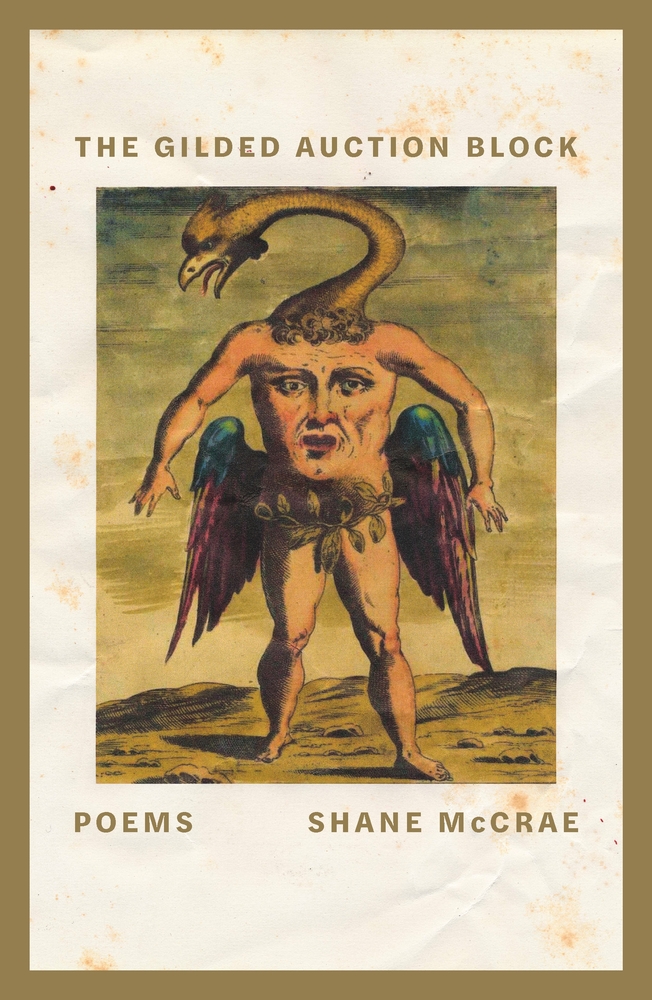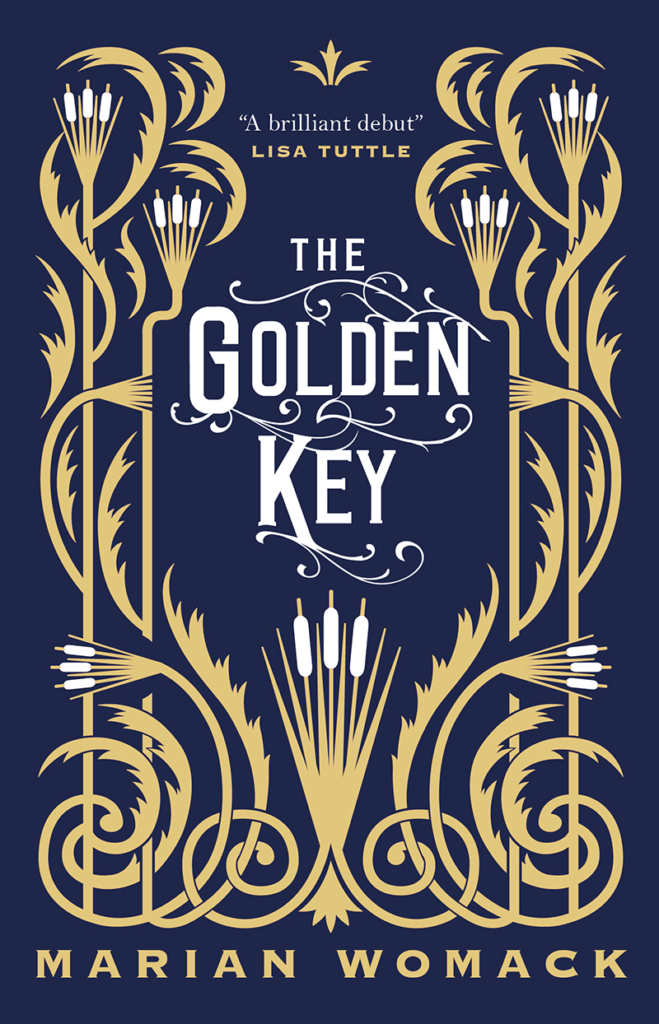
The Gilded Auction Block by Shane McCrae
Addressing America, Shane McCrae’s speaker in “Everything I Know About Blackness I Learned from Donald Trump” says “even in my dreams I’m in your dreams.” McCrae’s The Gilded Auction Block turns America and the American dream inside out, and in doing so creates a surreal logic—a fractured but incisive way of looking at contemporary America. Although the epigraphs are often quotes from the current political moment, the book undergoes a traditional narrative of katabasis when the speaker descends into Hell to confront a Trumpian figure (among other demons). McCrae’s attention to enjambment, rhythm, and space opens up the poetic line and sets a distinct tempo for the reader.
In “Display Food” McCrae asks “And in what other country America / Could I within the country seek the country,” and it is McCrae’s seeking that makes the book tick. The poems don’t offer a hopeful view of their country, but they carry a sense of patriotic duty to look at the country and say what they see. McCrae grabs hold of the contemporary landscape and remolds it into a fever dream,a dream with an unflinching gaze at white supremacy, family ties, and the way the political invades our daily lives. His vision of how lyric poetry can interrogate our reality is necessary, unique, and a disconcerting joy to read.
-Morgan Levine

The Golden Key by Marian Womack
Mystery stories have a long and illustrious history that gives readers set expectations when they begin reading a novel. Marian Womack’s The Golden Key leans into these expectations just enough to capture the readers’ attention before carrying them off on a wild journey into a more fantastical and ominous world than one could possibly anticipate.
The novel is difficult to follow at first as a large cast of characters with seemingly unrelated storylines start to take the stage. However, a careful reader will be rewarded as the plot threads intertwine around the mysterious disappearance of three young girls nearly 20 years before the novel begins. Every detail and clue is worth remembering as the reader hunts for answers alongside the characters. The novel has supernatural aspects from the beginning. However, Womack carefully puts the readers in a similar state of doubt to the characters about the potential otherworldly causes of the disappearance.
The Golden Key features a large and diverse cast of characters with compelling leads that will quickly fall into the hearts of any reader. Womack’s lyrical prose and fantastic eye for detail enhance the general sense that this novel exists in a liminal space. At the dawn of the 20th century in England, new ideas conflicted with the old and the rationality of the world fluctuated. Skepticism and science rose while old prejudices clung for life and hidden forces stirred. Womack expertly captures this tantalizing and chaotic energy while telling a compelling mystery that will keep the pages turning.
-Evan Mortimer
A Long Petal of the Sea by Isabel Allende, translated by Nick Caistor and Amanda Hopkinson
Allende’s new book, A Long Petal of the Sea, begins with a young soldier in the Spanish Civil War whose heart has become exposed from a gunshot wound to the chest. He is saved by an equally young medical student, Victor Dalmau, who puts his hand in the wound and squeezes the soldier’s heart until it beats again. This episode follows Victor through the many exiles of his life: he flees Franco’s Spain, only to end up in a brutal French internment camp. He narrowly escapes World War II by emigrating to Chile on the Winnipeg, a boat that the poet Pablo Neruda commissions to save thousands of refugees, but after many years in Chile is displaced once more by a military coup. Allende’s opening image of the soldier’s exposed heart speaks to the fragility of home in Victor’s repeatedly shattered world, but it simultaneously emphasizes the endurance of humans loves and lives, easily uprooted but capable of resuscitation, regeneration.
In her author’s note, Allende speaks of first hearing about Neruda and the Winnipeg, the “ship of hope,” at her grandfather’s house. A Long Petal of the Sea is the result of meticulous research into historical events and individuals. Using Neruda’s militant poetry as an underlying frame, Allende pronounces that the book “wrote itself, as if it had been dictated to [her].” This Muse-like invocation is emphasized by the Odyssean nature of Victor’s life, as well as that of his fierce and virtuosic companion, Roser Bruguera. Allende’s portrayal of their relationship, a “marriage of convenience” that evolves into a profound affinity untouched by romantic or sexual jealousy, is the most touching aspect of the book.
A Long Petal of the Sea is an epic, boasting a multi-generational and international purview, but it is also a richly intimate portrait of familial and patriotic love. What does it mean to have duty to your kin and country when they have become unrecognizable? Are there forms of belonging beyond blood or nationality? These expansive questions are grounded by Allende’s precise, luminous prose, capturing a world that is categorically unstable and imbuing it with meaning.
-Spencer Grayson
